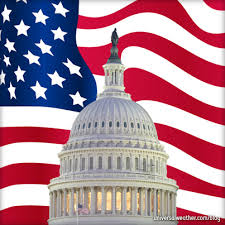Expected Executive Action Would Change “Don’t Ask, Don’t Tell” Implementation
Experts Caution Against Slow Roll of Implementation
SANTA BARBARA, CA, – The Palm Center has announced that President Obama’s executive changes to the “don’t ask, don’t tell” policy, expected to be announced Tuesday, could significantly impact the lives of gay troops. The expected statements from Defense Secretary Gates and Chairman of the Joint Chiefs of Staff Admiral Mike Mullen would protect some service members from investigations based on third-party allegations and set a new standard for what constitutes reliable sources and credible information that trigger a “don’t ask, don’t tell” investigation. It is also expected that the military brass will announce changes to the adjudication of potential discharges, whose effect could be to require a flag officer to sign off on any discharge for it to move forward.
“This ‘Obama Rule’ could provide a new standard for ‘don’t ask, don’t tell’ investigations,” said Dr. Aaron Belkin, Director of the Palm Center. “Depending on how it’s implemented, the executive action taken by the President could be seismic. ‘Don’t ask, don’t tell’ has rested on the belief that the presence of openly gay service members is always bad for the military. The new Obama Rule would mean a shift in the military’s focus toward keeping gay troops, reflecting the military’s belief that they are as essential as their heterosexual peers.”
Belkin also said the effectiveness of the changes would depend on what message was sent by top civilian and uniformed leaders to the officers responsible for approving discharges. “If new discretion is being granted to two-stars, then the actual impact of the Obama rule will hinge on whether the President, the Defense Secretary, and the Service Chiefs send a clear signal that discharges are to be minimized,” Belkin said.
Recent media reports have suggested the Pentagon leadership may promote a lengthy process of implementation that would unfold over several years, a prospect that Palm Center experts found problematic. Dr. Nathaniel Frank, Senior Research Fellow at the Palm Center and author of “Unfriendly Fire: How the Gay Ban Undermines the Military and Weakens America,” said the impact of the expected announcement would depend on an operational timeline that emphasizes strong leadership and swift implementation.
“The evidence is overwhelming that a quick turnaround on policy change minimizes disruptions to unit cohesion and morale,” he said. “If this is the goal, there should be no slow-rolling of the implementation process.” Frank pointed to the 1993 Rand Corporation report on implementing gay service that stated that openly gay service was entirely workable, but that a successful new policy must be “decided upon and implemented as quickly as possible” to avoid anxiety and uncertainty in the field. It said it was crucial “to convey a new policy that ends discrimination as simply as possible and to impose the minimum of changes on personnel.” Rand then outlined a Standard of Professional Conduct to guide interpersonal behavior that emphasized a uniform code of behavior for all service members.
“I’m encouraged by the apparent movement on this issue by the President and the military,” Frank said. “I’m also hoping they’ve reviewed the research on implementation and will create a plan that reflects the President’s commitment to ending this policy in 2010.”
In 1995, President Clinton lifted a ban at the CIA, which reversed an Eisenhower policy denying security clearances to gay agents. In 1992, a court ruling in Canada allowed gays to serve openly in the military nearly immediately. And in 1999, a court ruling forced the British military to allow openly gay troops within months. That transition, according to Frank, was implemented quickly and decisively, which is consistent with what is suggested by implementation research. “The CIA and foreign militaries provide successful models for implementing a new policy to allow openly gay service,” said Frank. “Each of them provided clear conduct rules, strong leadership and change on a short, definite timeline.” A 1993 General Accounting Office (GAO) report on the “Policies and Practices of Foreign Militaries” concluded that the smooth transition was attributed “to the military leadership’s support of the new policy and the military’s ability to keep a low profile on the issue.”
Christopher Neff, Deputy Executive Director at the Palm Center, noted the distinction between the military’s policy on openly gay service and the Congressional law, which remains unchanged. “The statute, 10 U.S.C. 654, remains on the books and Congress is responsible for changes to the law,” Neff stated. He advised service members to consult with Servicemembers Legal Defense Network with any questions they may have about how changes to the policy might affect them.
